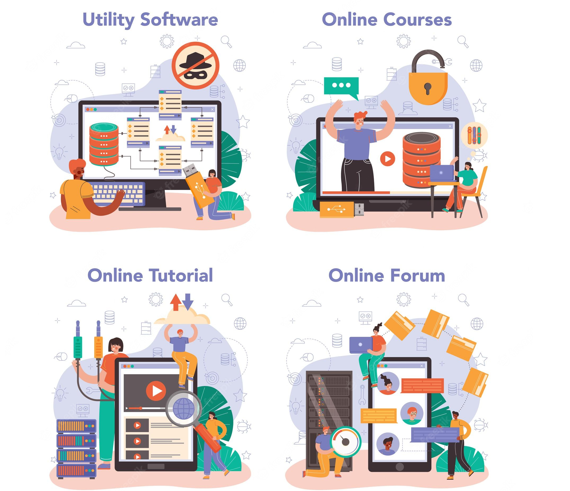Utilities Software | What Is Utilities Software | What Is A Utility Define | Utility Utility Software Examples | Utilities Software Examples | Example Of Utility | Software Examples Of Utility Software

Utility software is a broad category of software that helps you manage your organization’s equipment, documents, and other assets. It can be used to track inventory, keep records of who has what piece of equipment or documents, and more. If you run a small business, utility software could help you reduce the time required to keep track of your company’s assets.
If you have employees or contractors working for you, utility software could help make it easier to keep track of them so they don’t show up on your payroll or taxes as personal expenses. That’s because utility software can be used by many different types of businesses from small storefronts to large corporations. It can even be used by educational institutions as part of their overall management system.
There are many different kinds of utility software available today. To help you decide which one best suits your company and needs, here’s what we consider to be the most relevant characteristics of this type of software:
What Is Utility Software?
Utility software is software that helps you track inventory, keep records of who has what piece of equipment or documents, and more. It can be used to track inventory, keep records of who has what piece of equipment or documents, and more.
It can also be used to manage the operational aspects of a business such as managing the tracking of shipments, receiving and delivering documents, managing payroll, and more.
What Does Utility Software Do?
When you purchase software to manage your assets, you’re actually buying into a larger ecosystem of applications that work together to monitor and manage your assets.
The purpose of the software is to facilitate these various applications. This kind of software is often referred to as an enterprise software system.
Types of Utility Software
There are many different types of utility software, including the following: Business-to-Business (B2B) is the most common form of business-to-business software. B2B software is used to track the movement of assets such as equipment, materials, people, or information.
\ This type of software often has a business end that is connected to your company’s computer network. Consumer-to-Business (CTB) is the other version of business-to-business software. CTB software is used to track the movement of assets such as merchandise, employees, or customers.
This kind of software often has a consumer-facing interface. Business-to-Individual (B2I) is a unique form of business-to-consumer software. B2C software is used to manage the interactions between individuals and companies.
B2C software is often used for one-to-one sales oria and peer-to-peer transfers. Business-to-Government (B2G) is a growing area of business-to-government software. B2G software is used to track assets such as merchandise, employees, contracts, or information.
evaluated by the need and wants of your business
It’s important to try out different software packages before you choose the best fit for your business. This will help you identify the right software for your particular business needs.
You can also try to use software examples from different companies to get a feel for how their software stacks up to yours.
What to Look for in a Utility Software
When you’re deciding on a new utility software, you should look for a number of qualities. Some of these will be specific to each type of software, but some will apply to all forms of software. 64 or more users supported.
This indicates the amount of scalability that the software has to offer. It’s important to look for software that has a lot of room for growth without getting out of hand. Multi-lingual support. This is helpful if you operate in more than one language.
It’s great if you work in several countries such as English, French, and Spanish. You want your customers to be able to communicate with you in their own language as well.
Data Reliability. Data reliability is important because you want to be able to trust the information your software produces. If you find the software generating incorrect results, it could be because the data is in or the software has been shipped faulty.
Conclusion
Many companies find themselves in a position where they need to purchase a new software system. The challenge is often deciding which system to use. The best kind of software is the one that is easy to understand and use.
It should also be able to meet your company’s needs for a long time. You should also consider the following things when choosing a new software system: How easy is it to use? How well does it support 64 or more users? What data quality is it capable of? How reliable is the data?
These are all questions you should ask yourself when deciding which software to buy. If you answered “not yet” to any of these questions, we recommend consulting with a software integrator to help you choose the right software for your needs.
